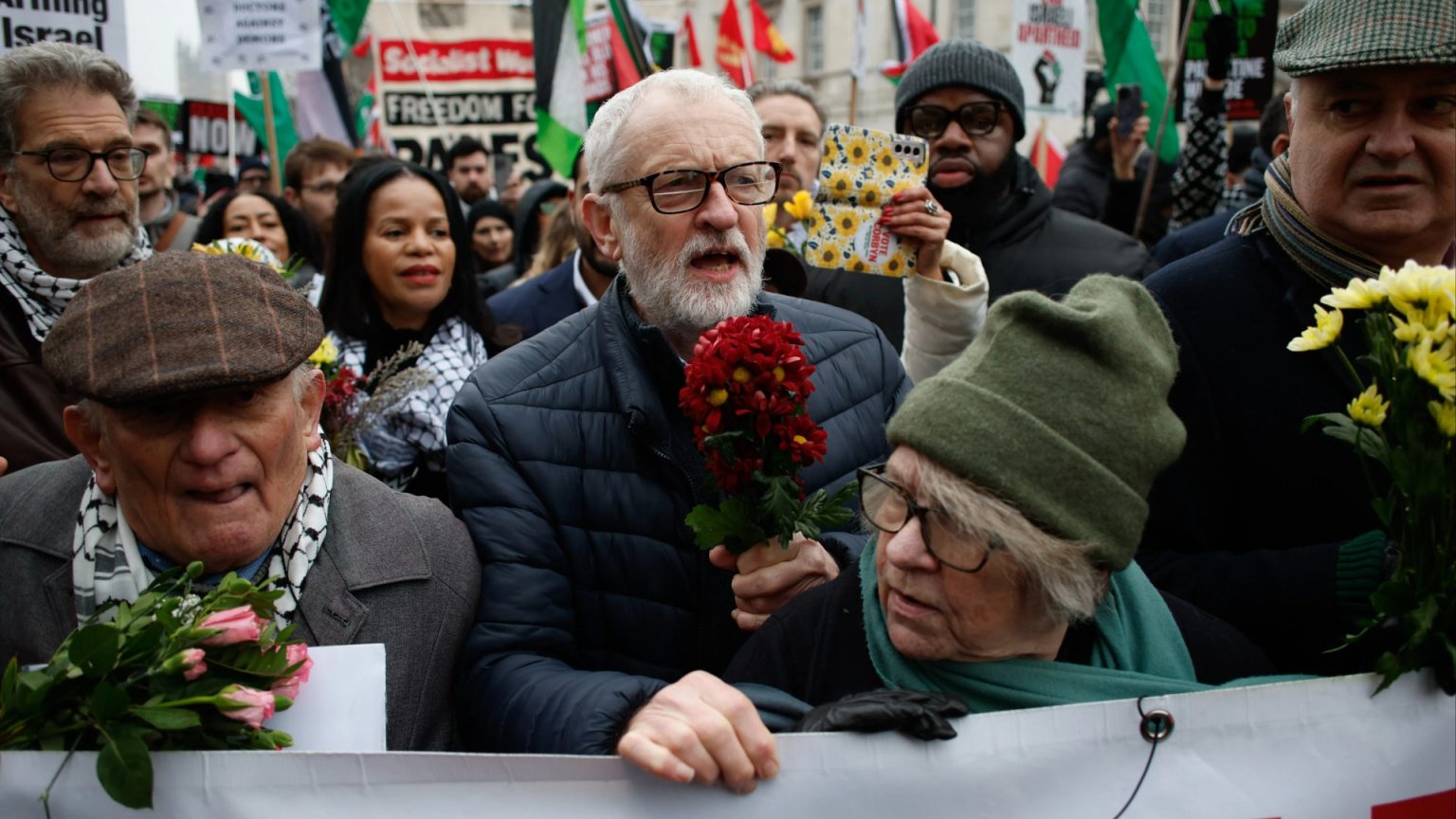The Investigation and Arrests
Former Labour Party leader Jeremy Corbyn and former shadow chancellor John McDonnell faced police questioning following a pro-Palestine rally in London. The Metropolitan Police launched an investigation into alleged breaches of conditions imposed on the demonstration, leading to the voluntary attendance of Corbyn, McDonnell, and a third individual at a police station. The investigation stems from claims that organizers coordinated efforts to violate the imposed restrictions, including marching beyond designated areas. The Met Police stated that three men, aged 75, 73, and 61, agreed to be interviewed under caution. This development follows the charging of ten individuals with public order offenses related to the same protest. Police reported that 77 people were arrested during the rally, with charges ranging from breach of conditions and public order offenses to more serious allegations such as inciting racial hatred and assault on an emergency worker. Piers Corbyn, brother of Jeremy Corbyn, was also among those arrested.
Conflicting Accounts of the Events
Corbyn and McDonnell disputed the police narrative, asserting that they were part of a delegation intending to lay flowers in memory of children killed in Gaza. They maintain that they did not force their way through police lines and that their actions were facilitated by the police. They further stated they informed officers they would proceed no further than Trafalgar Square, where they would lay flowers and then disperse. Upon reaching Trafalgar Square, they reported that Chris Nineham, a chief steward of the protest, was arrested, after which they turned back and dispersed. Corbyn and McDonnell urged the police to release all bodycam footage to support their account and retract what they considered a misleading portrayal of the events. They emphasized their peaceful intentions and adherence to instructions.
The Protest and Its Context
The rally, organized by the Palestine Solidarity Campaign (PSC), attracted thousands of demonstrators. The initial plans for a march past the BBC and near a synagogue were curtailed by police, who imposed conditions restricting access to certain areas. The demonstration took place on Whitehall and later moved towards Trafalgar Square. The PSC criticized the Met’s imposed conditions as "repressive," urging their removal. Other organizations, like the Muslim Association of Britain, echoed this sentiment, condemning the police action as an assault on democratic rights and freedom of expression. Conversely, the Campaign Against Antisemitism labeled the events a "dark day for London," advocating for a ban on such marches.
The Ceasefire and Hostage Release
Concurrent with the London protest, a fragile ceasefire between Israel and Hamas came into effect. The first three hostages released from Gaza arrived in Israel, reuniting with their families. Footage showed the women being transferred to Red Cross vehicles amidst a large crowd. The released hostages, Romi Gonen, Emily Damari, and Doron Steinbrecher, were reportedly in good health. The ceasefire agreement included the release of 90 Palestinian prisoners and marked a step towards ending the 15-month conflict. However, even after the ceasefire’s announced start time, Israeli fire reportedly killed at least 26 people in Gaza, according to the Health Ministry there.
Political Ramifications and Legal Proceedings
The ceasefire also triggered political repercussions in Israel, with the hard-line national security minister Itamar Ben-Gvir announcing his faction’s withdrawal from the government in protest. While this weakened Prime Minister Netanyahu’s coalition, it did not directly impact the truce. In a separate development, Israel announced the recovery of the body of a soldier killed in the 2014 Israel-Hamas war. The ten individuals charged with public order offenses in connection with the London protest are scheduled to appear at Westminster Magistrates’ Court.
Differing Perspectives on Policing and Protest
The events surrounding the pro-Palestine rally sparked debate regarding the balance between freedom of assembly and maintaining public order. Supporters of the protest criticized police actions as heavy-handed and a suppression of dissent, while others argued that the police were justified in enforcing restrictions to prevent disruption and potential violence. The contrasting narratives from the police and the protesters highlight the complexities of managing demonstrations and the importance of transparency in police operations. The call for the release of bodycam footage underscores the need for evidence-based accountability in such situations.




